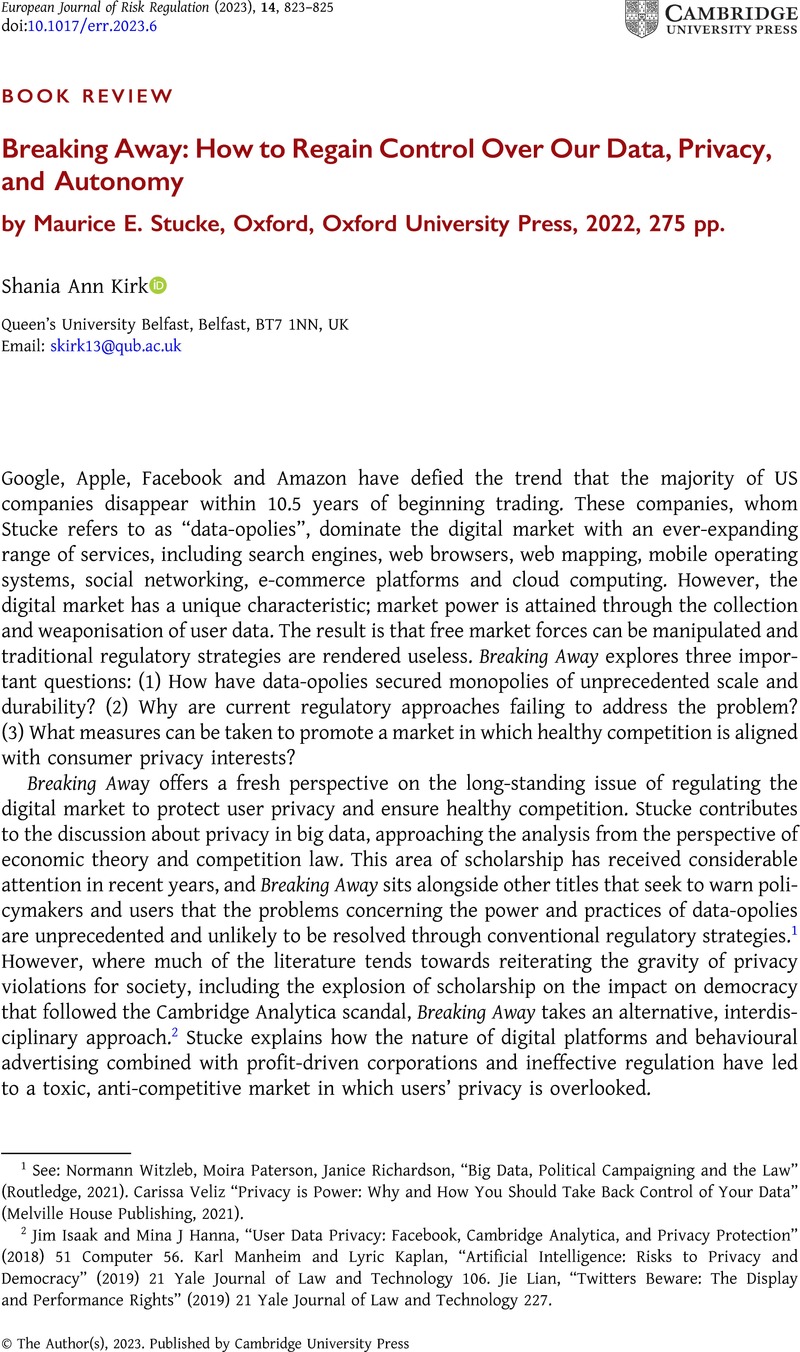No CrossRef data available.
Article contents
Breaking Away: How to Regain Control Over Our Data, Privacy, and Autonomy by Maurice E. Stucke, Oxford, Oxford University Press, 2022, 275 pp.
Review products
Published online by Cambridge University Press: 01 March 2023
Abstract

- Type
- Book Review
- Information
- European Journal of Risk Regulation , Volume 14 , Special Issue 4: Special Issue on Long-Term Risks and Future Generations , December 2023 , pp. 823 - 825
- Copyright
- © The Author(s), 2023. Published by Cambridge University Press
References
1 See: Normann Witzleb, Moira Paterson, Janice Richardson, “Big Data, Political Campaigning and the Law” (Routledge, 2021). Carissa Veliz “Privacy is Power: Why and How You Should Take Back Control of Your Data” (Melville House Publishing, 2021).
2 Jim Isaak and Mina J Hanna, “User Data Privacy: Facebook, Cambridge Analytica, and Privacy Protection” (2018) 51 Computer 56. Karl Manheim and Lyric Kaplan, “Artificial Intelligence: Risks to Privacy and Democracy” (2019) 21 Yale Journal of Law and Technology 106. Jie Lian, “Twitters Beware: The Display and Performance Rights” (2019) 21 Yale Journal of Law and Technology 227.


